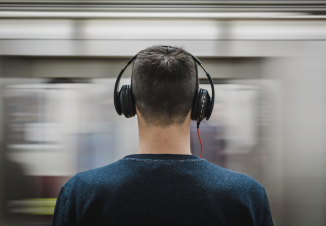
About the coronavirus (covid-19)
The Public Health Agency of Sweden is continuously monitoring developments and considers the risk of infection spreading in Sweden. Different measures have also been taken by the government.
Responsibility
To minimise the risk of infection spreading in Sweden, all employers should make a risk assessment according to the provisions issued by the Swedish Work Environment Authority (Swe: Arbetsmiljöverket) relating to systematic work environment management (AFS 2001:1) and infection spreading (AFS 2018:4). The employer should plan how a potential outbreak in the workplace would be handled, identify the particular work tasks that needs to be done continuously and make sure that all the employees that carry out these tasks work under as safe conditions as possible.
The employer is responsible for the organisation being run in such a way that the work environment is well run and no one becomes sick or hurt themselves because of their work. If the employer lacks the necessary knowledge to ensure this, it should reach out to relevant sources, such as the occupational health care authorities. A risk assessment should be made in collaboration with safety representatives.
Schools
The Public Health Agency of Sweden recommends high schools and universities to close and provide education online. Elementary schools are not yet closed. If there is a clear suspicion that a child is spreading the infection or if the child is infected, the employee can receive remuneration from the social security system (‘VAB’) for staying home to take care of a child until she or he turns 12. The employee does not have the right to receive salary or remuneration from the social security system if the employee stays home with a child because he or she is worried that the child could get infected in school.
Homeworking
Employers have the right to instruct employees to work from home if needed, regardless of whether the employee has any symptoms or not.
The Public Health Agency recommends employees in Stockholm work from home, if possible. Our recommendation is therefore to assess which employees, if any, can work from home, and provide these employees with guidelines regarding this.
As stated above, the employer is responsible for the organisation, ensuring that the work environment is safe and that no one becomes sick because of their work. If this cannot be guaranteed due to an outbreak, the organisation may have to close down a site or an office temporarily.
Pay
If an employee is fit and available for work, but the organisation has decided that the employee should stay at home, the employee is entitled to salary. If the employee can work from home, salary must be paid.
If the employee chooses of his or her own free will to work from home because of anxiety about becoming infected, the employer does not have to pay salary as this can be seen as refusal to follow the employer’s order. However, we recommend applying the Public Health Agency of Sweden recommendations in Stockholm and letting employees work from home, when possible.
If an employee is infected and therefore sick, the employee is not fit or available for work. If that occurs, sick leave will be paid. The government has decided that there will be no deduction of the first day of sickness, as in normal circumstances, and this first day of sickness will be paid by the social security system. Sick leave pay, which is normally paid by the employer day on days two to 14 would, according to a new proposal, be paid by the social security system, in April and May.
If an employee is held in quarantine, for instance due to the risk of infection spreading, the employee may be fit for work but not available. In this case the employer does not have to pay salary if nothing else is decided. The employees have in these cases the right to sickness benefits under the Social Insurance Code.
General recommendations
If the employee has developed symptoms such as a cough, coryza, difficulty breathing, fever or sore throat he or she should stay home and not come back to work until the employee is free om symptoms and two more days thereafter. If the employee is confirmed infected, she or he shall stay at home until his or her doctor confirms that he or she can return to work.
Employers should take employees’ concerns seriously. The coronavirus is classified as a disease that is dangerous to public health and to society. Therefore, it is appropriate for employers to take certain actions. For work environment reasons, the employer can instruct an employee to work from home, regardless of whether they have any symptoms or not. There are also rules in certain collective bargaining agreements that clearly state that in these situations, white-collar employees need to avoid the workplace because of the risk of infection spreading. An employee may then have the right to ‘infection benefit’ from the Swedish Social Insurance Office. An employee may also have the right to sick pay. Please note that the government now also will pay remuneration during day 1 of sick leave and that the government shall pay for sick leave, also during day 2-14, which is normally paid by the employer, in April and May.
The Ministry for Foreign Affairs advice against all travel abroad and from 19 March and the coming 30 days it will not be allowed to travel to Sweden, with certain exceptions.
If the company has a situation where certain financial measures must be taken there is a new proposal from the government regarding short time work allowance, see here for details.
Prevention
What can I, as an Employee, do to avoid infection?
According to the Public Health Agency of Sweden, a general preventive measure against respiratory infection is to avoid touching your face and eyes and to avoid close contact with sick people.
Wash hands often with soap and warm water, particularly before eating, before preparing lunch, and after toilet use. Alcohol-based hand rub can be used as an alternative when you are unable to wash your hands.
Cough and sneeze into the bend of your elbow or into a tissue to prevent infection from spreading around you, or from contaminating your hands.
Stay at home when you are sick to avoid infecting people at work or in other areas where you are close to other people.


